Duvet vs comforter – what's the difference and which is best for you?
Our resident Sleep Editor dives deep into the duvet vs comforter debate to uncover the pros and cons of each item for different sleepers
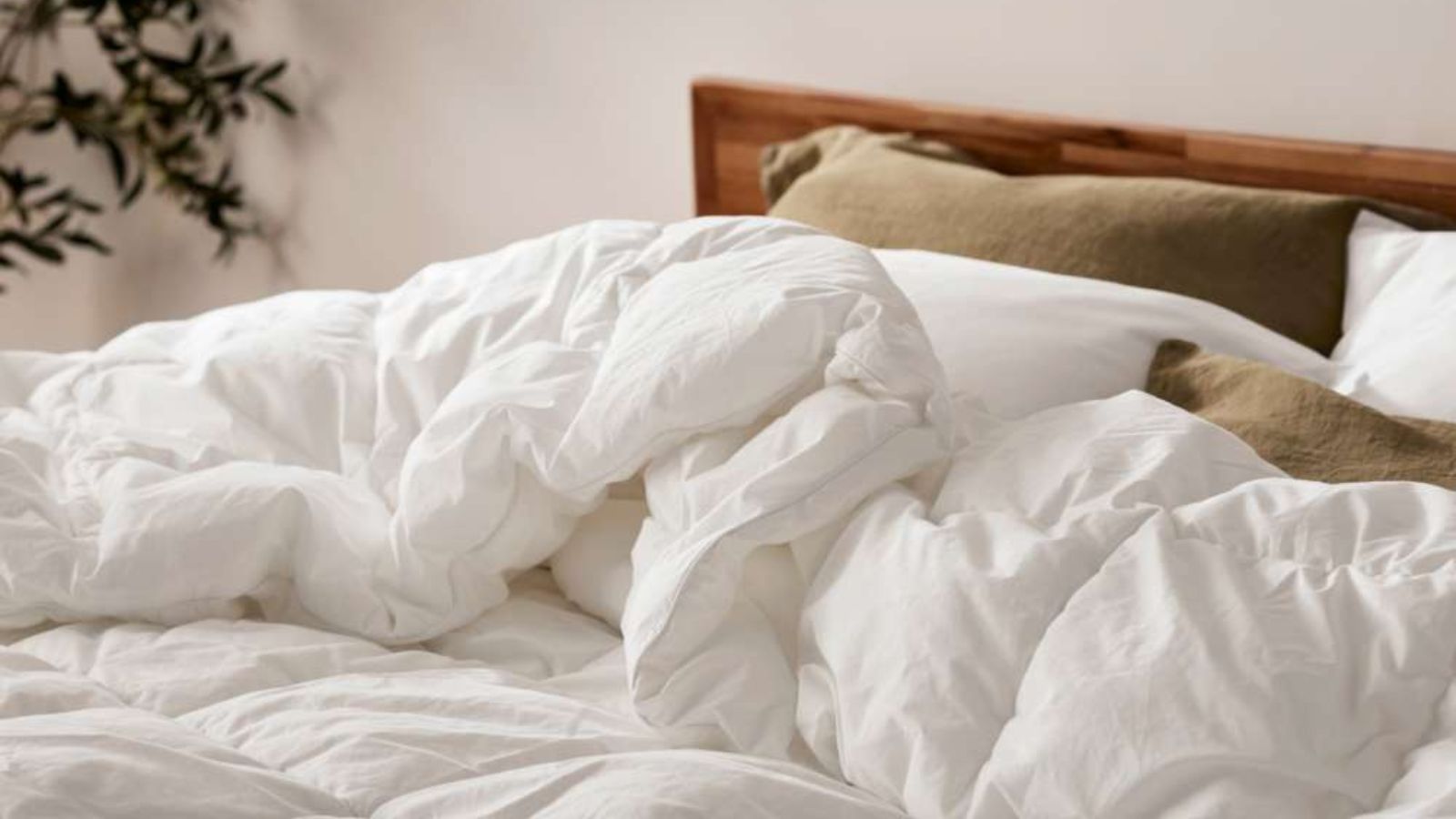

Duvet vs comforter: the debate rages on. Some people prefer the versatility of a duvet, while others appreciate the simplicity of a comforter, but still more believe that duvets and comforters are the same thing.
It's an easy mistake to make, but there are key distinctions between duvets and comforters that will make all the difference to your bedspread.
As the resident Sleep Editor at Homes & Gardens, I lead a team of expert testers in the search to find the world's best duvet inserts and comforters, so I can tell you the pros and cons of each item. To save you time and money, I've combed through our back catalog of reviews and searched the best places to buy bedding, bringing you duvets and comforters to suit every sleep style. You can cross-reference any unfamiliar terms against my bedding jargon buster.
Duvet vs comforter − which is best for you?
Before we begin, it always helps to define our terms. The difference between a duvet and a comforter is that a duvet comprises two detachable pieces – an insert and a cover – while a comforter is one integrated piece.
Duvets – the pros and cons
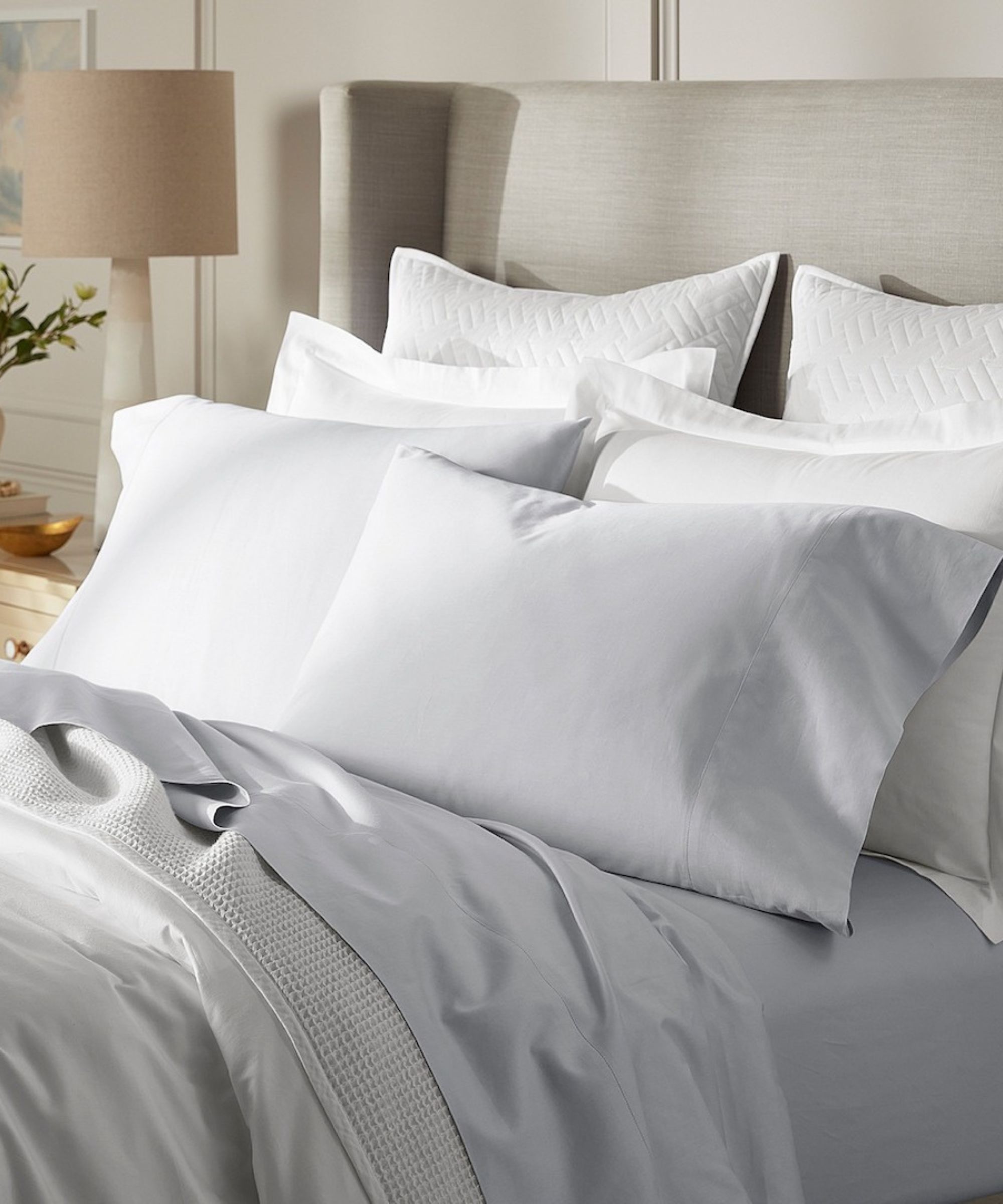
Duvets tend to be more expensive than comforters, but that's because they're often filled with higher-quality materials, including down and feather, rather than cheap and cheerful synthetic substitutes.
Duvets consist of inserts and covers, attached with corner loops and ties or secured with buttons or poppers. You can switch your duvet cover with the seasons or as your aesthetic evolves, offering greater versatility.
Because the insert and the cover are separable, duvets are also easier to clean than comforters. You can throw your duvet cover into the washer and dryer along with the rest of your sheets. Since your skin doesn't touch the insert, it will take much longer for dust and dirt to build up inside your duvet.
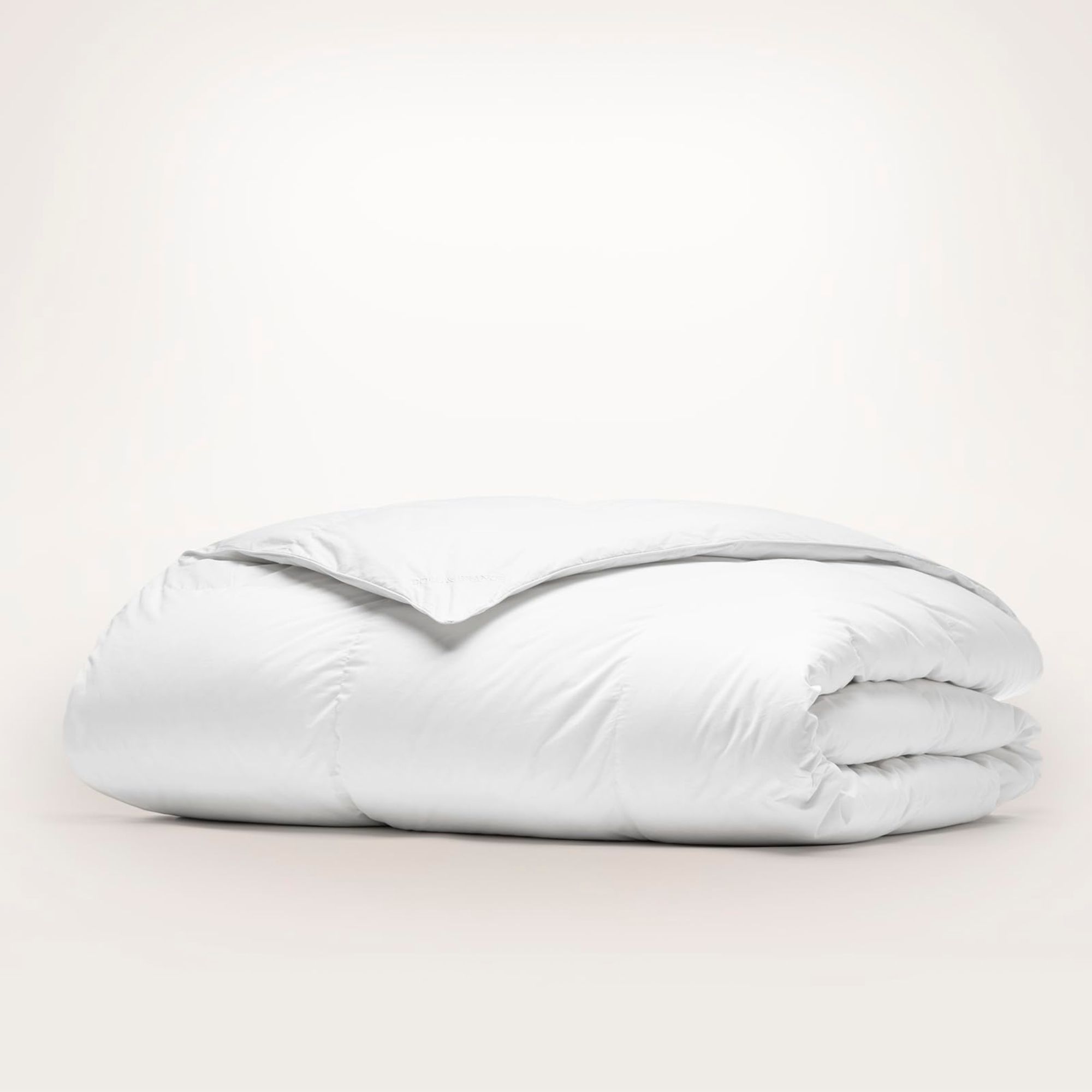
Reigning champion in our 'best duvet inserts' buying guide, this piece is available in three densities to suit every season. I'd recommend Lightweight for warm climates, Ultraweight for winter weather, and Midweight for everybody else.
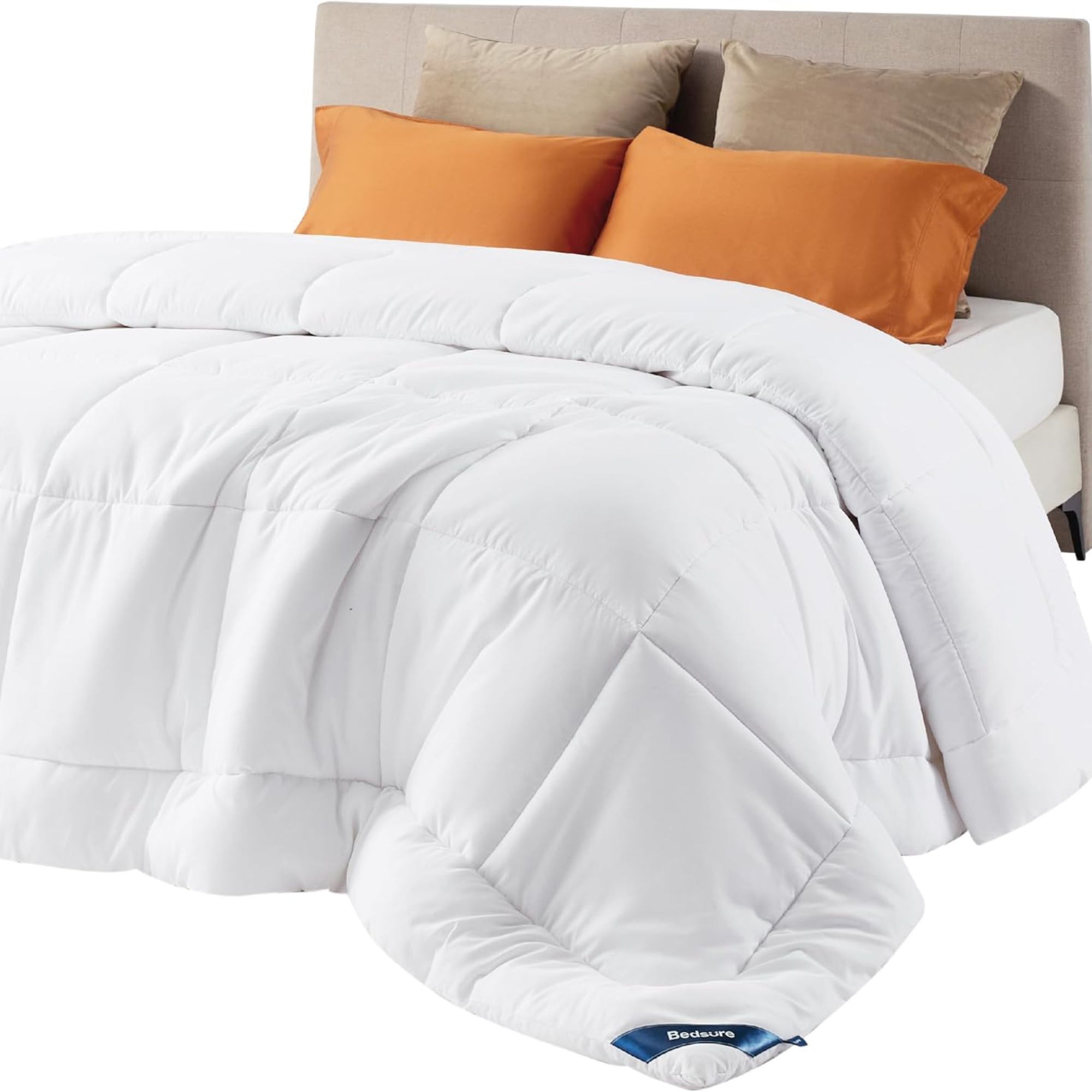
Amazon is one of the best places to buy affordable bedding, and this insert is no exception. The Bedsure Duvet Insert boasts a 4.7 average star rating from more than 27,000 verified reviews. 'It’s fantastic value for the price,' reads one recent review. 'It's a little heavy, but I love how it makes my bed feel extra plush.'
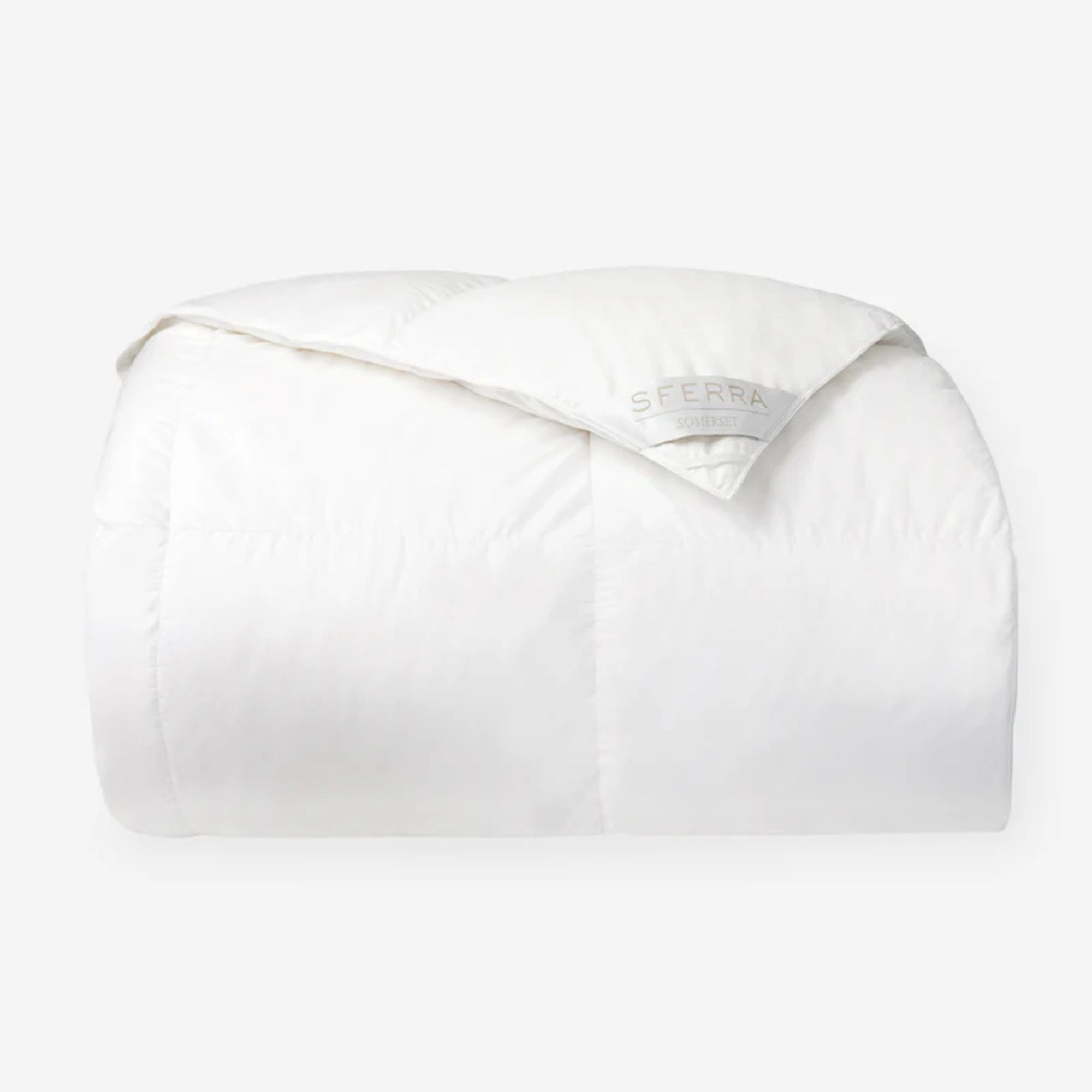
Right at the other end of the price range, we've got a luxury goose down duvet. 'As a working parent, the Sferra Somerset Duvet transports me to a place where sleep is not only possible, but enjoyable,' says expert tester Alex Frost. 'I tested this comforter through a harsh winter in the Midwest and found it retains a lot of heat to keep you toasty.'
Comforters − the pros and cons
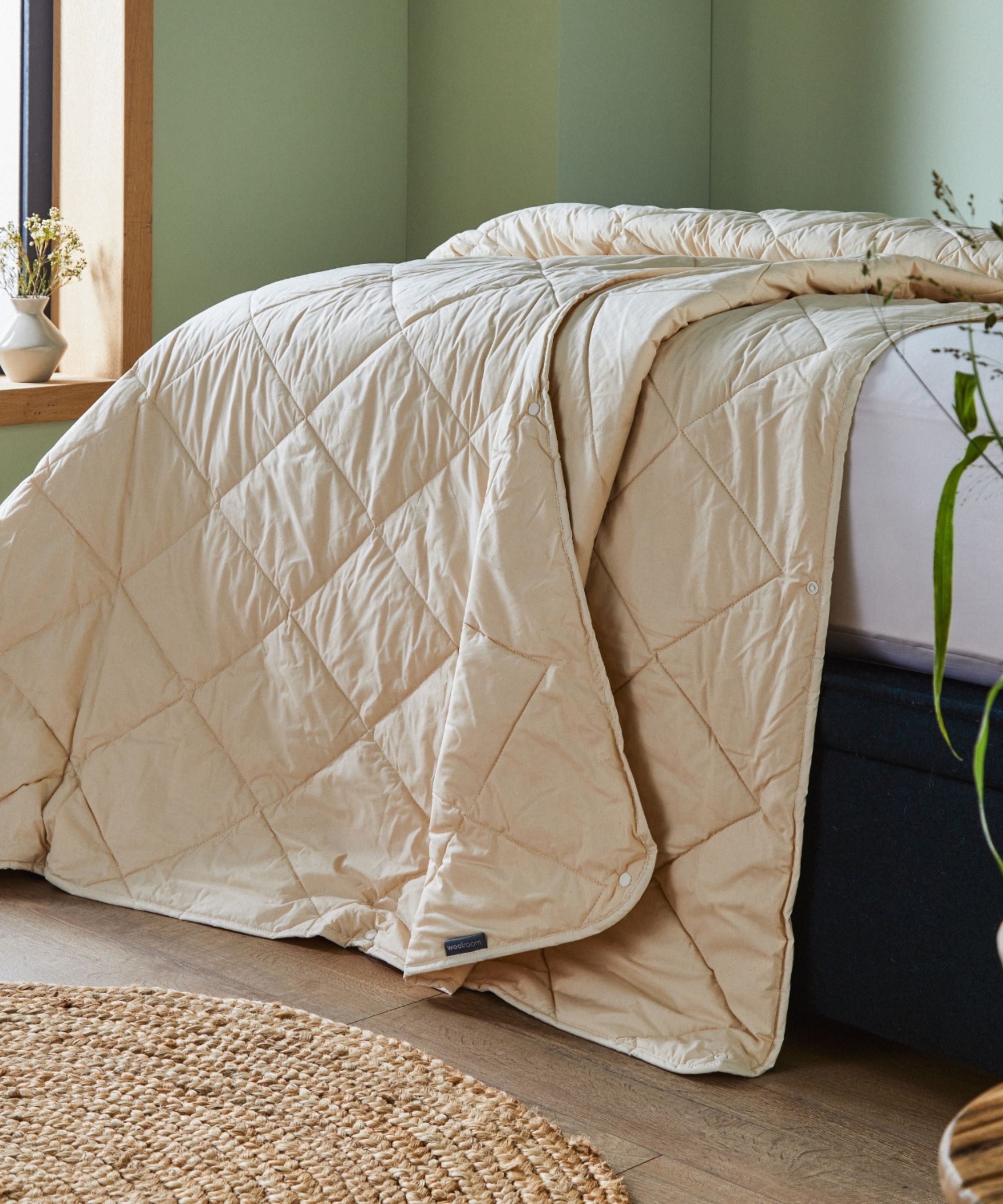
Your average comforter is far more affordable than a duvet, but that's why it's all the more important to be discerning when you're shopping. Try to steer clear of cheap synthetic fibers and fills in favor of natural materials, such as wool and cotton, to soothe your skin, regulate your temperature, and wick away moisture.
Compared with duvets, comforters are harder to keep clean. In the absence of a detachable cover or case, you'll have to squeeze the entire comforter inside your washing machine drum when you want to clean it. If you want to keep your comforter cleaner for longer, you could try sleeping with a flat sheet between your body and the rest of your bedding.
Also, because you can't alter the look and feel of your comforter by changing the cover, I recommend you opt for a classic shade, such as white or cream, to complement any color palette.
To get the best of both worlds, you can try using a comforter in a duvet cover. Since you won't find any corner loops and ties, you'll need to try another way to secure your comforter. I suggest you try the bedding burrito trend.
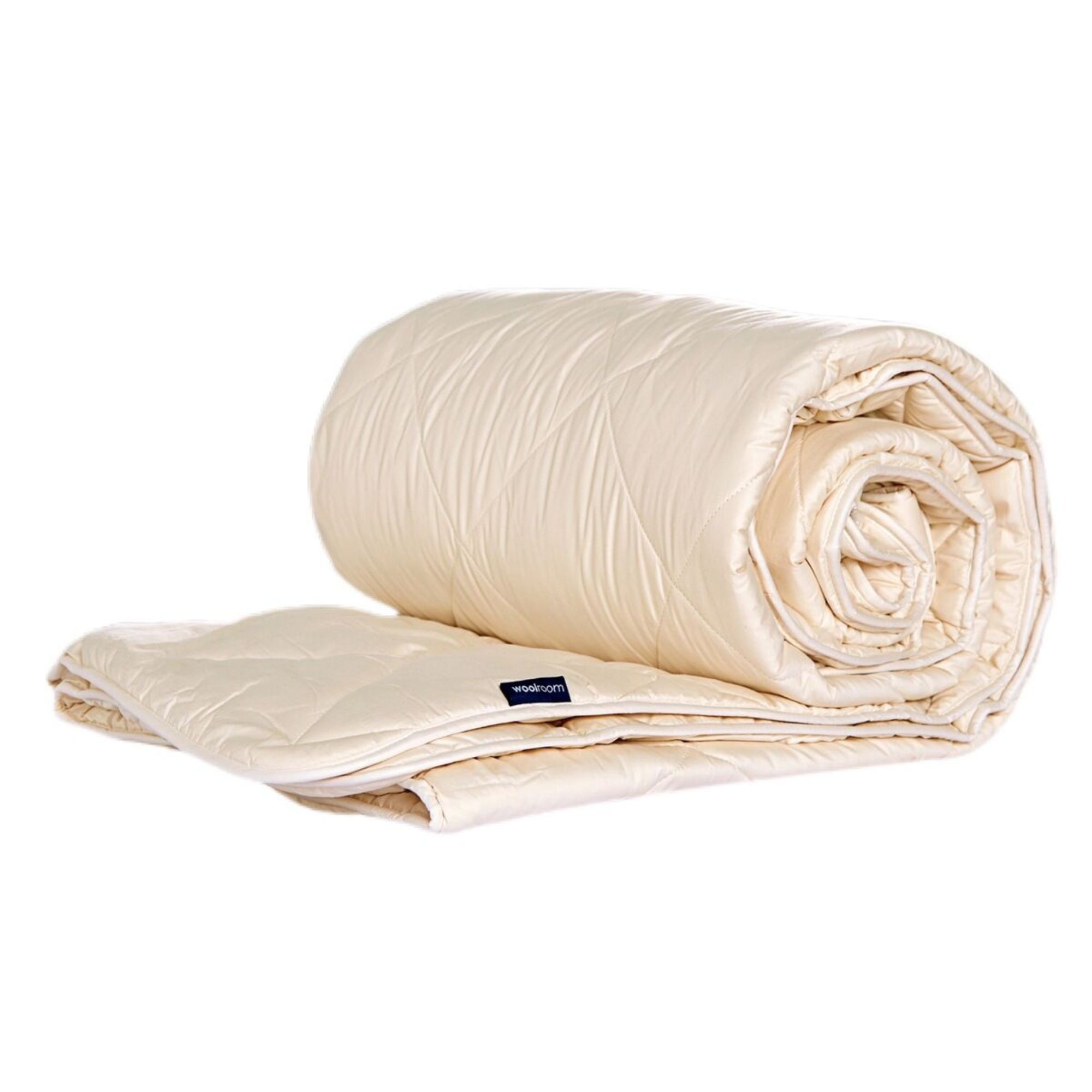
This is one of the best cooling comforters for anyone who suffers from night sweats. According to the Woolroom Clean Sleep Report, wool can hold up to a third of its weight in sweat. In my experience, this Woolroom comforter keeps my bed and my body cool and dry.
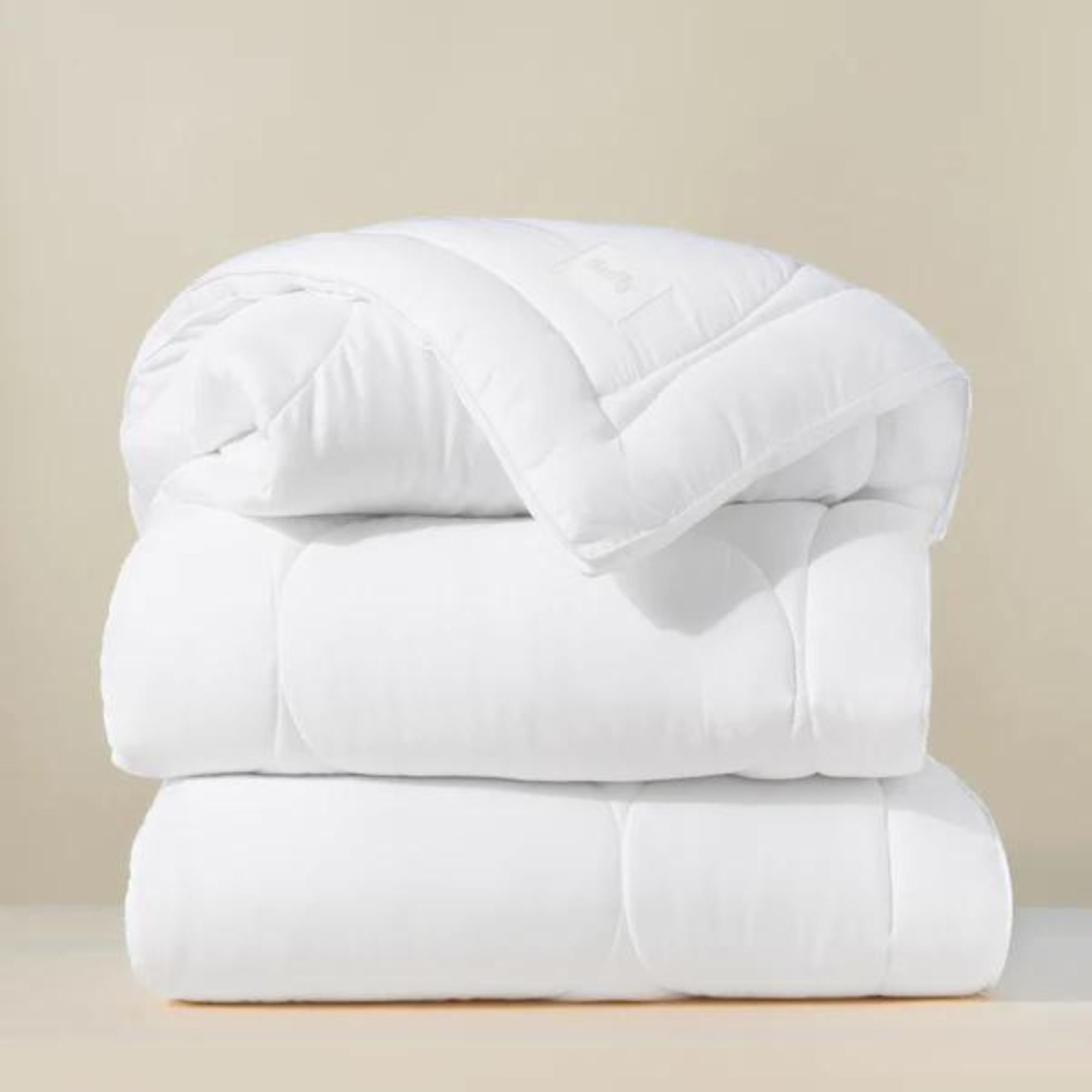
For vegan shoppers and anyone with a feather allergy, I recommend down alternative, and the Buffy Cloud Comforter is your best option. This lightweight layer felt a little thin at the start of spring, but it really came into its own over summer, keeping me cool through a heatwave.
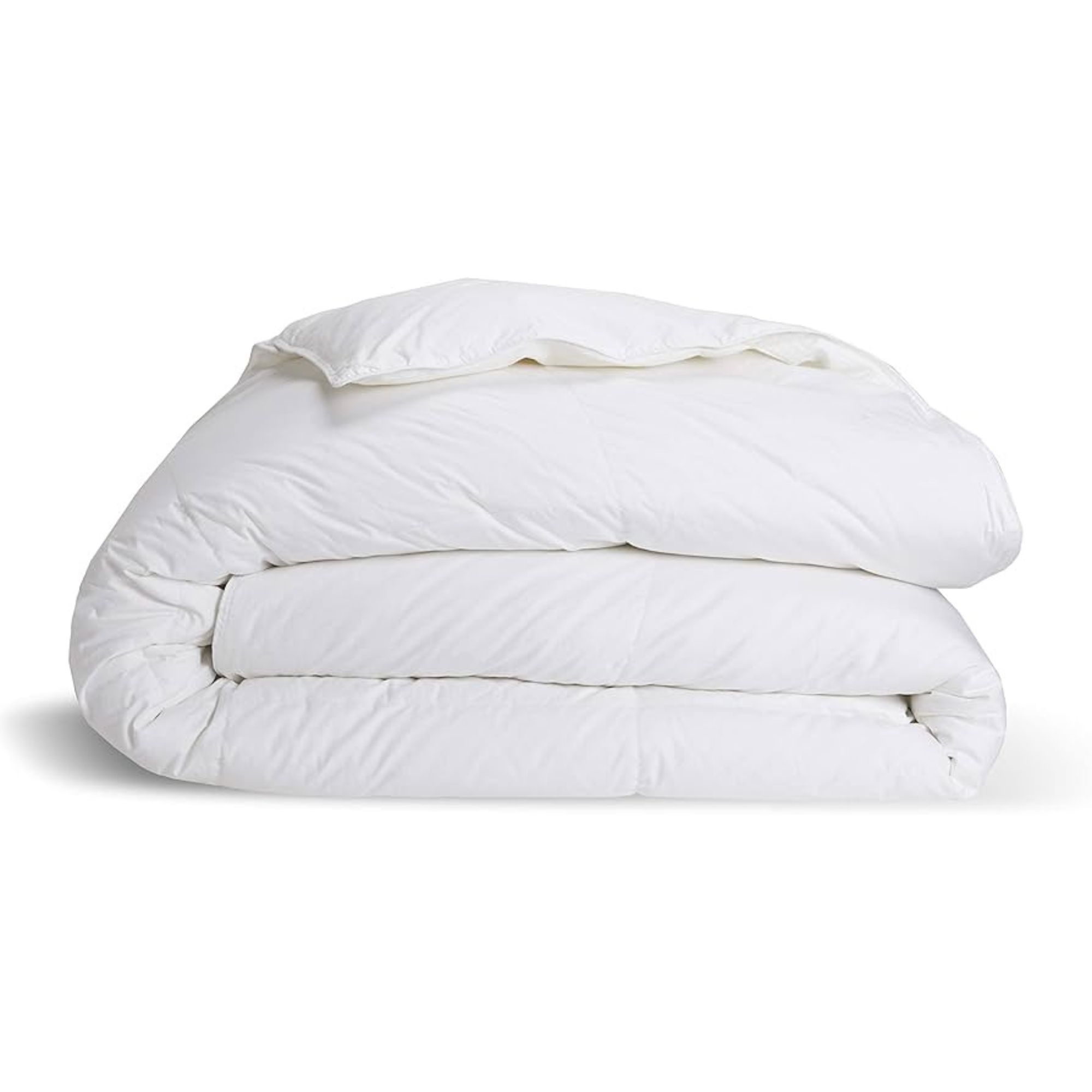
Rather than individual feather filaments, which can poke through the fabric shell and scratch your skin, this comforter is filled with light and fluffy down clusters. Out of all the comforters I've tried, the Brooklinen Down Comforter has the most natural loft, which makes for a beautiful bedspread.
As a general rule, I'd recommend comforters for buyers on a budget, and duvets for anybody who wants more control over the look and feel of their bedspread. Browse the best places to buy comforters to inspire your thinking.
Sign up to the Homes & Gardens newsletter
Design expertise in your inbox – from inspiring decorating ideas and beautiful celebrity homes to practical gardening advice and shopping round-ups.

Emilia is our resident sleep writer. She spends her days tracking down the lowest prices on the best mattresses and bedding and spends her nights testing them out from the comfort of her own home. Emilia leads a team of testers across America to find the best mattress for every sleep style, body type, and budget.
Emilia's quest to learn how to sleep better takes her all around the world, from the 3Z mattress factory in Glendale, Arizona to the Hästens headquarters in Köping, Sweden. She's interviewed luxury bedding designers at Shleep and Pure Parima, as well as the Design Manager at IKEA. Before she joined Homes & Gardens, Emilia studied English at the University of Oxford.
You must confirm your public display name before commenting
Please logout and then login again, you will then be prompted to enter your display name.
-
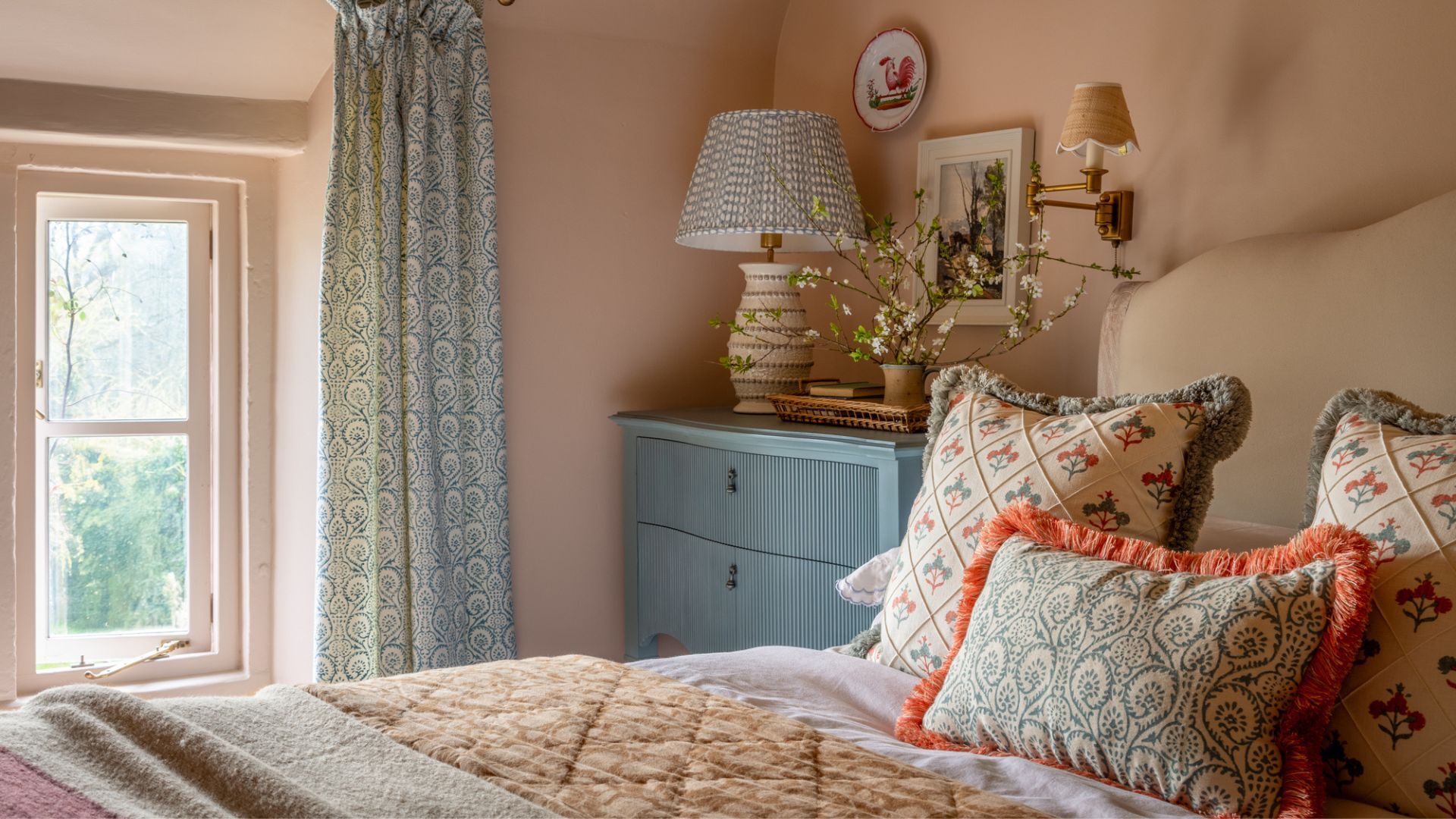 These are the 6 must-have colors to decorate with in April 2025
These are the 6 must-have colors to decorate with in April 2025What do retro-inspired yellows and beautiful blues all have in common? They're on our hot list for the season ahead
By Sophia Pouget de St Victor Published
-
 Plants never to grow next to fruit trees
Plants never to grow next to fruit treesExpert advice on which plants to keep away from fruit trees to encourage a healthy harvest
By Jacky Parker Published